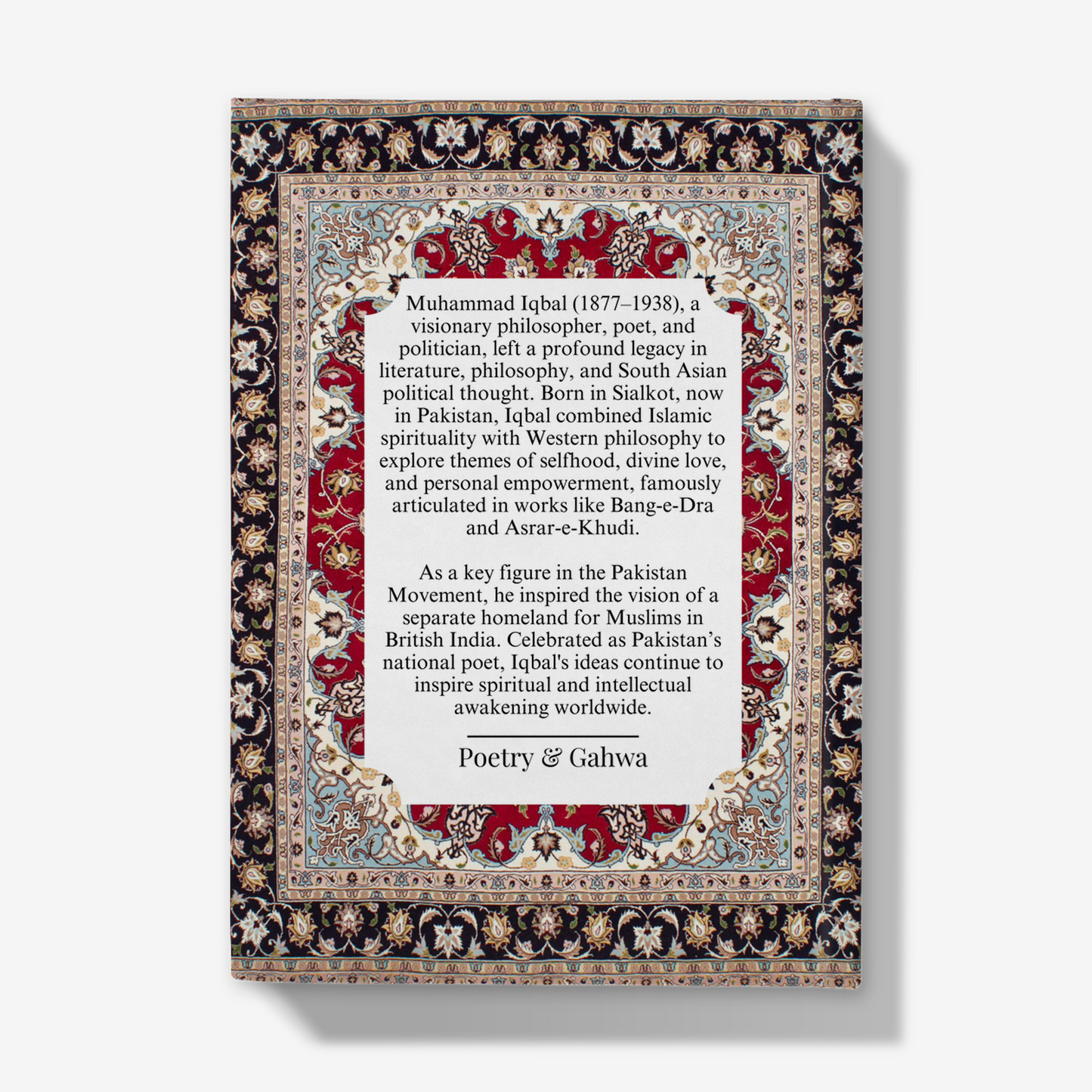Poetry & Gahwa
Muhammad Iqbal: 'Words without power are mere philosophy' Journal
Muhammad Iqbal: 'Words without power are mere philosophy' Journal
Couldn't load pickup availability
'Words without power are mere philosophy'
~Muhammad Iqbal
Experience the art of writing with the Mohammad Iqbal Journal, a timeless companion for those who cherish the elegance of thoughtful design.
Available in a convenient 5 x 7” format, this journal offers a robust 260gsm hardback cover with a chipboard construction and refined vinyl laminate finish, providing unmatched durability and sophistication.
Inside, 128 pages of premium 90gsm paper await your every word, idea, or sketch.
Choose from ruled, graph, or blank pages to best suit your unique creative pursuits.
With full-bleed print on the front and back covers, the Ibn Sina Journal is crafted to inspire and elevate your writing experience.
Whether for journaling, note-taking, or artistic exploration, this journal transforms the simple act of writing into an art form.
ABOUT MUHAMMAD IQBAL
Muhammad Iqbal (1877–1938) was a visionary philosopher, poet, and politician whose works have left a lasting legacy in the realms of literature, philosophy, and South Asian political thought.
Born in Sialkot, in present-day Pakistan, Iqbal pursued an education that spanned both traditional Islamic scholarship and Western philosophy, studying at institutions like Government College Lahore, the University of Cambridge, and Ludwig Maximilian University in Germany. His philosophical outlook blended Islamic spirituality with a forward-thinking perspective on selfhood and individual potential. Through his famous poetry collections, such as Bang-e-Dra (The Call of the Marching Bell) and Asrar-e-Khudi (The Secrets of the Self), Iqbal introduced concepts of self-realization and personal empowerment within an Islamic framework, emphasizing that every individual has an inherent divinely inspired purpose. His verses are deeply rooted in themes of self-discovery, divine love, and the concept of Khudi (selfhood), challenging people to strive toward spiritual and intellectual awakening.
Politically, Iqbal is remembered as a prominent figure in the Pakistan Movement, inspiring Muslims in British India to envision a separate homeland where they could freely practice their faith and culture. Iqbal’s legacy as a poet-philosopher continues to inspire millions around the world, particularly in Pakistan, where he is celebrated as the national poet. His enduring influence is evident in literature, art, and education, where his words continue to inspire and motivate generations to rise above limitations and engage meaningfully with the world around them.



